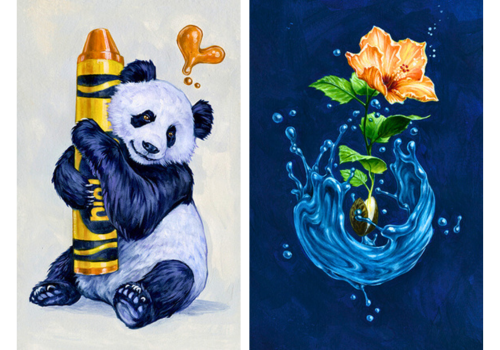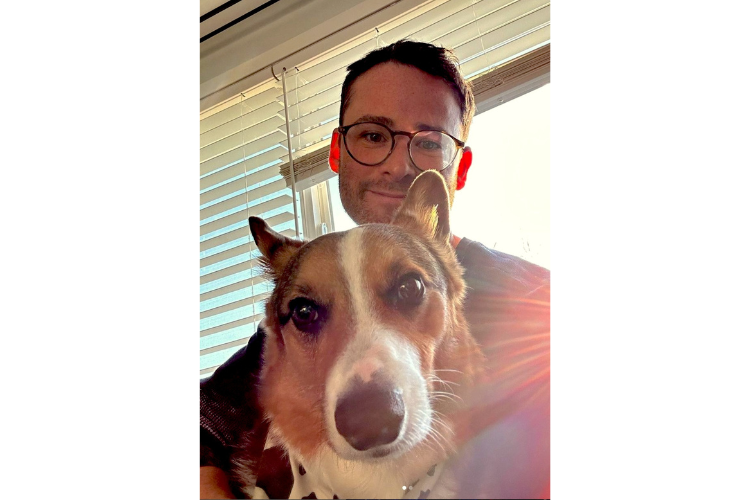By David Swartz, Douglas County News-Press
Denver artist learns that asking for help requires strength and successful recovery means practicing the ask
Growing up, independence and self-sufficiency were always synonymous with masculinity for me. The idea that I could do it on my own, that I would be “less than” if I asked for a helping hand, was an ideal I not only believed in, but strived to live up to.
I asked for as little help as possible. Facing the difficult task of processing my emotions as I entered adolescence, I was overwhelmed and under-equipped. Seeking support never crossed my mind. The more pain I endured, the more resolute I became to conquer it on my own.
I found a magic solution — the illusion of control via drugs and alcohol. The immediate oblivion brought on by substances allowed me to trick myself into believing I had taken control. However, the escape I found in substances lessened over time, leaving me without the relief I so desperately needed.
For years my stubborn worship of self-sufficiency kept me in the living hell of addiction. When I was finally beaten down enough to ask for help, I was mortified, disgusted by my weakness and convinced of my failure as a man.
This is the unfortunate reality for many men grappling with addiction. “Man up” far too frequently becomes the mantra for many tragic stories of demise into alcoholic insanity and death. That story nearly became my reality.
According to the Substance Abuse and Mental Health Services Administration (SAMHSA), mental illness is less prevalent in men than women, but it often goes untreated in men. Men are two to three times more likely to misuse drugs than women, and according to Mental Health America, men die by suicide at a rate four times higher than women.
To become a healthy man, I had to learn to accept that I needed help, and then practice asking for it. The first time was excruciating, then it became less so over time.
It’s become the foundation on which my recovery from addiction has been built, the gateway to finding a level of peace and serenity I never thought possible. I’m thankful for the opportunity to help lift the stigma around asking for help.

This is a process. Six years into my recovery I still have difficulty asking for help and fall into old patterns of arrogance and independence. The more I ask for help, the easier it is to keep asking. Practicing reaching out for small pieces of advice on a regular basis helps me seek support when I’m dealing with a deeper and heavier problem. Building relationships over time makes me feel safe and comfortable.
Thankfully, we live in a different world than I experienced in my childhood, where I learned to worship the false belief of self-sufficient masculinity through our culture. I now embrace masculinity and femininity not as opposing forces, but as two sides of the same coin of humanity. While change continues in our culture, there is still a long way to go. Awareness still needs to be raised. Recovery stories need to be heard.
One way I strive to do this is through Colorado’s Recovery Cards Project. I had the privilege of designing two greeting cards that can be sent to loved ones struggling in the early stages of recovery. Through this program, I have shared my story and helped others open up about theirs. The free cards are an easy and accessible way for friends and family to show support and encourage our loved ones on a path to vulnerability and recovery.
June is Men’s Health Month, an opportunity to continue these discussions. It’s not a responsibility to be passed onto others or to place the burden of change at men’s feet. It’s a collective effort we can all take part in, to love and support each other so that we may feel safe and comfortable reaching out for help.
David Swartz uses acrylic and watercolor paints to create bright, energetic art with a humorous twist. He believes connection enriches the world and creates a sense of unity and compassion. Find more of Swartz's work on Instagram.
We republished this article through a partnership with the Colorado News Collaborative. Read the original article here.


